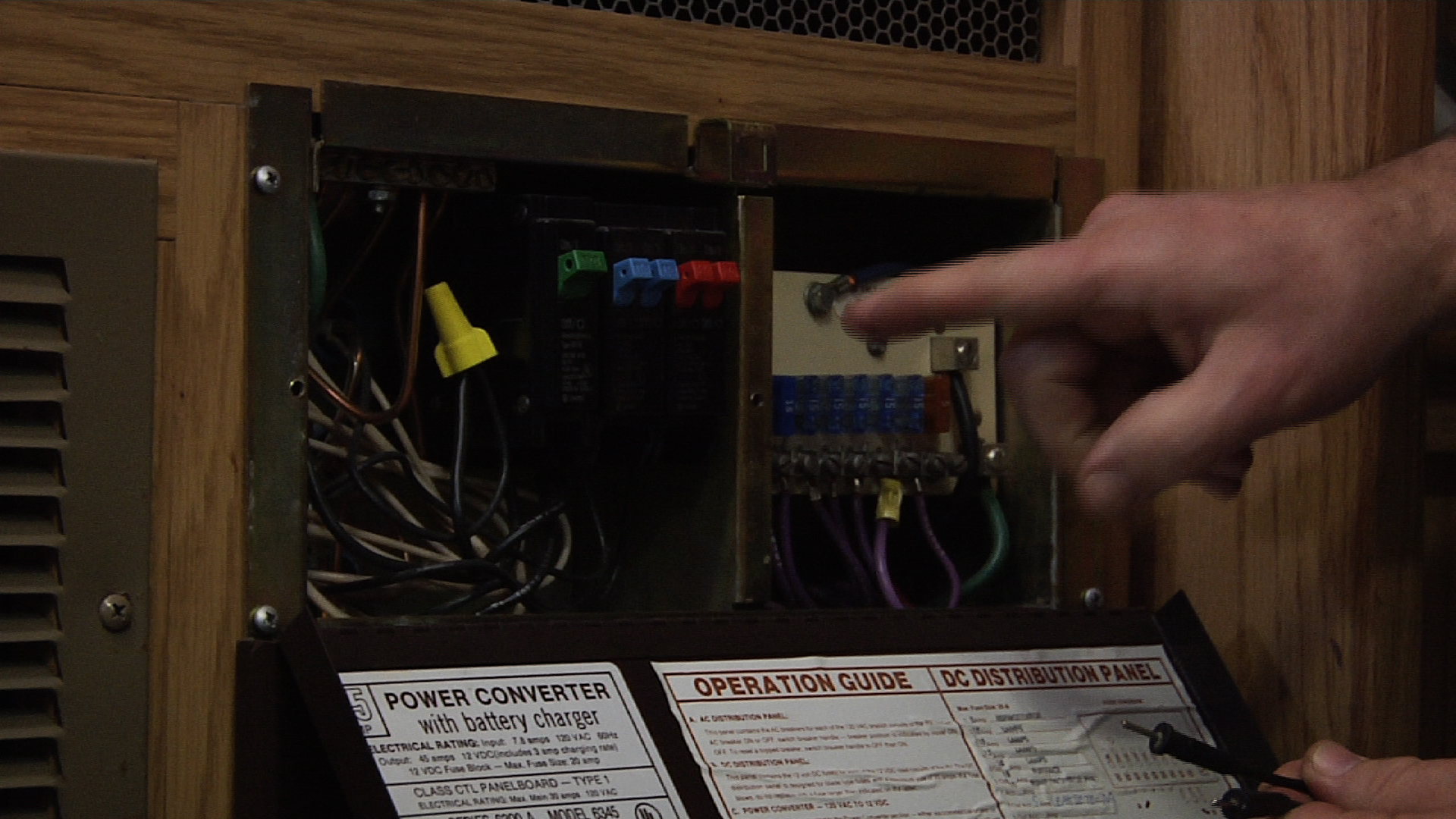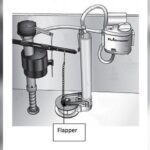Dealing with camper converter issues can be frustrating. But don’t worry, we’re here to help!
Camper converters are crucial for transforming power so your appliances run smoothly. When they fail, it can disrupt your camping experience. Understanding common problems and solutions can save you time and stress. This guide will walk you through the basics of camper converter troubleshooting.
We’ll cover typical symptoms, common causes, and simple fixes. Whether you’re a seasoned camper or new to RV life, these tips will empower you to handle converter problems like a pro. Let’s dive in and get your camper back to perfect working order!
Power Issues
Power issues in camper converters can be frustrating. Whether you face no power output or intermittent power, addressing these problems is crucial. Let’s dive into the common power issues and how to troubleshoot them effectively.
No Power Output
If your camper converter shows no power output, start by checking the power source. Ensure the battery is fully charged and connected properly. Examine the fuses and circuit breakers. Replace any blown fuses and reset tripped breakers. Inspect the wiring for loose connections or damage. Tighten any loose wires and fix or replace damaged ones. Sometimes, the converter itself may be faulty. If all else fails, consider testing the converter with a multimeter or seeking professional help.
Intermittent Power
Intermittent power can be tricky to diagnose. First, check for loose or corroded connections. Clean and secure all connections to ensure a steady power flow. Look at the battery terminals. Clean any corrosion and ensure a tight connection. Inspect the circuit breakers and fuses. Replace any that show signs of wear or damage. Sometimes, the problem lies within the converter. Test the converter with a multimeter to rule out internal faults. If the issue persists, professional assistance may be needed.

Credit: www.rvrepairclub.com
Overheating Problems
Overheating is a common issue with camper converters. It can cause significant damage if not addressed promptly. Understanding the causes and preventive measures can help keep your camper converter in top condition.
Causes Of Overheating
Several factors can lead to overheating problems in camper converters. Knowing these can help you identify the issue early.
- Poor Ventilation: Lack of proper airflow can cause heat buildup.
- Overloading: Using too many devices can strain the converter.
- Dirty Components: Dust and dirt can clog the cooling system.
- Faulty Fans: Broken fans fail to dissipate heat effectively.
- High Ambient Temperature: Hot weather can contribute to overheating.
Preventive Measures
Taking preventive measures can help you avoid overheating problems in your camper converter.
- Ensure Proper Ventilation: Keep vents clear of obstructions.
- Avoid Overloading: Do not connect too many devices at once.
- Regular Cleaning: Clean the converter and its components regularly.
- Check Fans: Ensure fans are working properly.
- Monitor Temperature: Use a temperature gauge to keep track of heat levels.
By understanding the causes and taking preventive steps, you can keep your camper converter running smoothly.
Voltage Irregularities
Voltage irregularities can cause problems with camper converters. It’s important to check for consistent power supply. Fixing these issues ensures your camper’s electrical systems work properly.
Voltage irregularities can be a common issue with camper converters. These irregularities can disrupt your power supply, leading to various problems. Understanding and troubleshooting these issues can help maintain a steady power flow. In this section, we will discuss common voltage irregularities. We will focus on low voltage output and voltage fluctuations.Low Voltage Output
Low voltage output can be frustrating. It often means your appliances won’t run properly. This issue can stem from various sources. First, check the battery. Ensure it’s fully charged. A weak battery can cause low voltage output. Next, inspect the connections. Loose or corroded connections can disrupt the power flow. Tighten and clean them as needed. Finally, check the converter itself. A faulty converter might not supply the correct voltage. In such cases, professional help may be needed.Voltage Fluctuations
Voltage fluctuations can damage your devices. They can cause lights to flicker or appliances to malfunction. Start by checking the power source. Ensure it’s stable and consistent. Fluctuations can also arise from faulty wiring. Inspect the wiring for any damage or wear. Replace any faulty wires immediately. Another cause could be overloading the converter. Reduce the number of devices plugged in. This can help stabilize the voltage. If the problem persists, the converter might be failing. Consider seeking professional repair or replacement.
Credit: www.doityourselfrv.com
Noise And Vibration
Camper converters can sometimes produce unwanted noise and vibration. This can be annoying and disruptive during your travels. Understanding the sources of noise and how to reduce them can make your trip more enjoyable.
Identifying Noise Sources
First, you need to identify where the noise is coming from. Common sources include:
- Fans and Motors: These components can become loud over time.
- Loose Parts: Screws and bolts can loosen and cause rattling.
- Electrical Components: Buzzing sounds can come from transformers or other electrical parts.
Use a process of elimination to pinpoint the source. Turn off and on different components to see when the noise stops.
Solutions To Reduce Noise
Once you have identified the source, you can take steps to reduce or eliminate the noise.
| Source | Solution |
|---|---|
| Fans and Motors | Check for dust and clean them. Lubricate if necessary. |
| Loose Parts | Tighten screws and bolts. Use thread locker if needed. |
| Electrical Components | Check for worn-out parts and replace them. Ensure proper grounding. |
For persistent noise issues, consider using noise-dampening materials. These can be installed around the converter to absorb sound.
Maintaining your camper converter can help reduce noise over time. Regular checks and cleaning can prevent many issues before they start.
Fuse And Circuit Breaker Issues
Fuse and circuit breaker issues can cause headaches in camper converters. These problems can stop power to your devices. Knowing how to troubleshoot these issues can save you time and frustration.
Blown Fuses
Blown fuses are common in camper converters. They can stop power to lights and appliances. Check the fuse box if something stops working. Look for a fuse with a broken wire inside. Replace it with a new fuse of the same rating. Always carry spare fuses in your camper.
Tripped Circuit Breakers
Tripped circuit breakers protect your camper’s electrical system. They stop power when there is an overload. Find the circuit breaker panel in your camper. Look for a switch that is in the middle position. Reset it by turning it off and then on again. If it trips again, reduce the load on that circuit.
Battery Charging Problems
Battery charging problems can be frustrating for camper owners. A malfunctioning converter can cause various issues. These issues can disrupt your travel plans. Understanding and addressing these problems is crucial. Let’s explore common battery charging issues and solutions.
Poor Charging Performance
Poor charging performance is a common issue. Your battery may not charge fully. This can lead to power shortages. Check for loose or corroded connections. They can hinder the charging process. Ensure the charger is compatible with your battery type. Incompatible chargers can reduce efficiency.
Battery Maintenance Tips
Regular maintenance can prevent charging problems. Clean the battery terminals regularly. Dirt and corrosion can affect performance. Use a mixture of baking soda and water for cleaning. Ensure the battery is properly secured. Loose batteries can cause damage.
Check electrolyte levels if your battery is not sealed. Low levels can reduce charging efficiency. Top up with distilled water if necessary. Avoid overcharging the battery. Overcharging can shorten the battery’s lifespan. Use a smart charger to prevent overcharging.
Maintenance Tips
Regular maintenance of your camper converter is essential. It ensures optimal performance and longevity. This section offers crucial tips on routine checks, cleaning, and storage for your camper converter.
Routine Checks
Performing routine checks helps identify potential issues early. It prevents major problems and costly repairs. Follow these steps:
- Inspect wiring: Look for loose or damaged wires.
- Check connections: Ensure all connections are secure.
- Test voltage output: Use a multimeter to check voltage levels.
- Monitor battery health: Verify battery charge and condition.
Cleaning And Storage
Proper cleaning and storage can significantly extend the life of your camper converter. Follow these tips:
- Keep it clean: Use a soft cloth to remove dust and debris.
- Avoid moisture: Store in a dry area to prevent rust.
- Disconnect when not in use: Unplug the converter to save energy.
- Cover it up: Use a protective cover during storage.
| Maintenance Task | Frequency | Tools Needed |
|---|---|---|
| Inspect wiring | Monthly | Visual inspection |
| Check connections | Monthly | Wrench, Screwdriver |
| Test voltage output | Monthly | Multimeter |
| Monitor battery health | Monthly | Battery tester |
| Clean exterior | Monthly | Soft cloth |
| Store in dry area | As needed | Protective cover |
Adhering to these maintenance tips can help ensure your camper converter remains in good working order. Stay proactive and enjoy your camping adventures with peace of mind.
When To Seek Professional Help
Camper converters are essential for converting DC power to AC power. They are crucial for your appliances and devices while camping. Sometimes, these converters face issues that need professional attention. Knowing when to seek help can save you time and money.
Signs You Need An Expert
Flickering Lights: If your lights flicker or dim, it could be a sign of a converter issue. It might need a professional to check the wiring or connections.
Battery Not Charging: If your battery does not charge, the converter might be faulty. A technician can diagnose and fix the problem.
Overheating: If your converter gets too hot, it can be dangerous. Overheating often means there’s a serious issue that needs immediate attention.
Strange Noises: Unusual sounds like buzzing or humming can indicate a malfunction. These noises often require an expert to fix.
Choosing The Right Technician
Experience: Look for a technician with experience in camper converters. An experienced technician will likely diagnose and fix the problem quickly.
Certifications: Ensure the technician has relevant certifications. This guarantees they have the necessary skills and knowledge.
Reviews: Check online reviews before making a decision. Positive reviews can give you confidence in the technician’s abilities.
Cost: Get a quote before any work begins. This helps you avoid unexpected costs.
| Criteria | Importance |
|---|---|
| Experience | High |
| Certifications | Medium |
| Reviews | High |
| Cost | Medium |
Choosing the right technician can make all the difference. Look for experience, certifications, and positive reviews. Always get a cost estimate before work begins.

Credit: www.rvrepairclub.com
Frequently Asked Questions
Why Is My Camper Converter Not Charging The Battery?
A blown fuse, bad wiring, or dead battery can cause this.
How Do I Know If My Camper Converter Is Bad?
Check for no output voltage, strange noises, or burnt smell.
What Causes A Camper Converter To Overheat?
Poor ventilation, overloading, or internal faults can lead to overheating.
Can I Replace A Camper Converter Myself?
Yes, but ensure you understand electrical work and follow safety guidelines.
Why Is My Camper Converter Making A Buzzing Noise?
Loose connections, faulty components, or overload can cause buzzing noises.
Conclusion
Troubleshooting your camper converter can be simple with the right steps. Follow the guide, check connections, and test components. Regular maintenance helps avoid future issues. Don’t hesitate to consult a professional if problems persist. Happy camping and safe travels!





